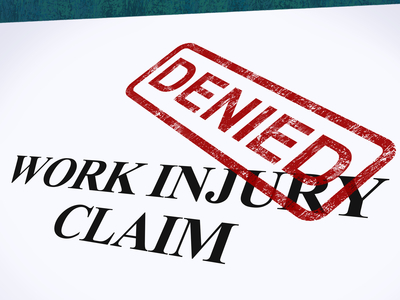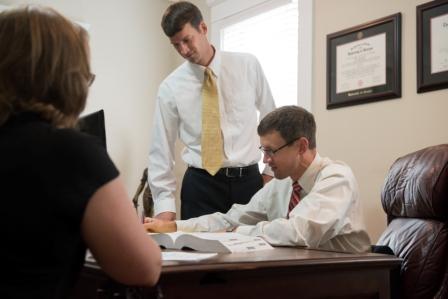When you get hurt at work, workers compensation should cover your injuries. This coverage means that you would receive certain workers compensation benefits. In Georgia, the main benefits provided by workers compensation are:
- Weekly checks for a percentage of your lost wages
- Payment of your medical bills for treatment and testing of your injury with certain doctors
- Payment for your permanent impairment if you do not fully recover from your injury
Unfortunately, insurance companies do not always pay these benefits. Sometimes, they deny all or part of your case. This article discusses how the workers compensation insurance company denies your case and what you can do when your case has been denied.
 How does the workers compensation insurance company deny your case?
How does the workers compensation insurance company deny your case?
In a Georgia workers compensation case, the insurance company should file something called a “controvert” if they deny your case. Controvert is just a fancy word for denial.
Under Georgia law, the insurance company should use certain forms to deny your case. The form that you receive from the insurance company denying your case should be either a Form WC-1 or a Form WC-3.
Does the insurance company need certain evidence to deny your workers compensation case?
The insurance company does not have to have any particular type of evidence to deny your case. They can just choose to approve it or deny it. So, you may receive a denial from the insurance company even when your case should have been accepted.
This can be very frustrating. I have seen many situations where insurance companies deny workers compensation coverage for injuries that should be covered. Some of the common reasons that an insurance company might deny your case include:
- Willful misconduct
- You were “off the clock” at the time of your injury
- You had a preexisting condition
Insurance companies sometimes assert these defenses even when they know they are likely to lose.
Can you appeal the denial of your workers compensation case?
Yes. You can fight the insurance company’s denial of your workers compensation case. The most common way of fighting this denial is to request a hearing in front of a workers compensation judge.
A hearing allows you the opportunity to prove you case to a workers compensation judge. The judge hears the evidence presented by both sides and makes a decision about whether you should receive workers compensation benefits.
 Do you have to hire a workers compensation attorney to appeal the denial of your case?
Do you have to hire a workers compensation attorney to appeal the denial of your case?
No. You do not have to hire an attorney to appeal the denial of your case. Proceeding to a hearing without an attorney in a a case is referred to as “pro se”. This means that you are representing yourself.
While you can represent yourself in a workers compensation hearing, I would not recommend it. There are specific rules under Georgia’s workers compensation law regarding the presentation of evidence. If you do not present your evidence correctly, the judge will not be able to consider it.
Also, you generally have the burden of proof in a workers compensation case. This means that you lose if you do not prove all parts of your case to the judge. A few of the things that you could have to prove include:
- Jurisdiction
- The Employer was subject to the Workers Compensation Act on the date of injury
- The Employer was insured on the date of injury
- Venue
- Employment on the date of injury
- Accident in the course of employment
- Accident arising out of the employment
- Notice
- Injury
- Disability
- Average weekly wage
Understanding the workers compensation law is a very important part of being able to prove your case to a judge. If you do not understand the law extremely well, you will probably not put up the right evidence to prove all elements of your case.
If you are appealing the denial of your case, speak to a workers compensation attorney to find out what can be done and to make a good decision about whether you should hire an attorney or not. My firm provides free consultations about your case so you can talk to us and learn what we could offer before making a decision to hire us.
 How does the workers compensation insurance company deny your case?
How does the workers compensation insurance company deny your case? Do you have to hire a workers compensation attorney to appeal the denial of your case?
Do you have to hire a workers compensation attorney to appeal the denial of your case?








